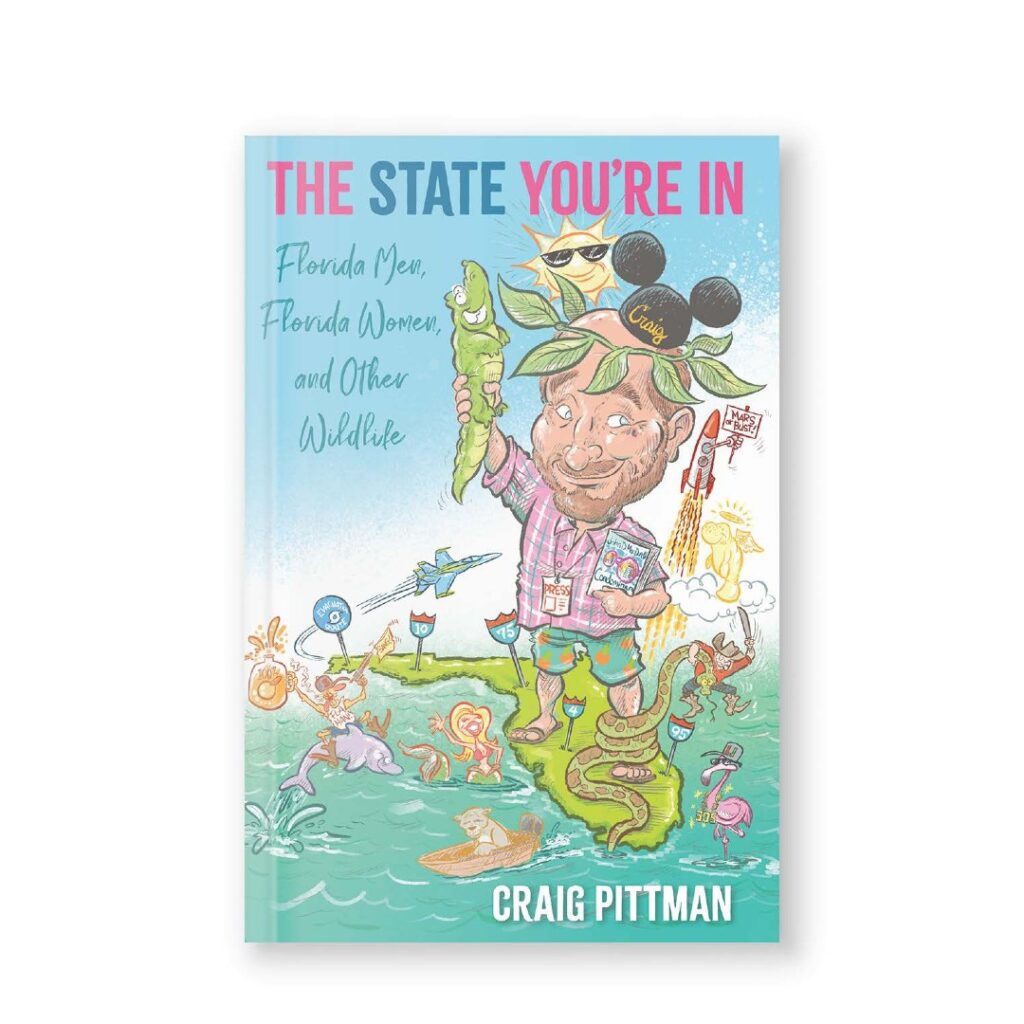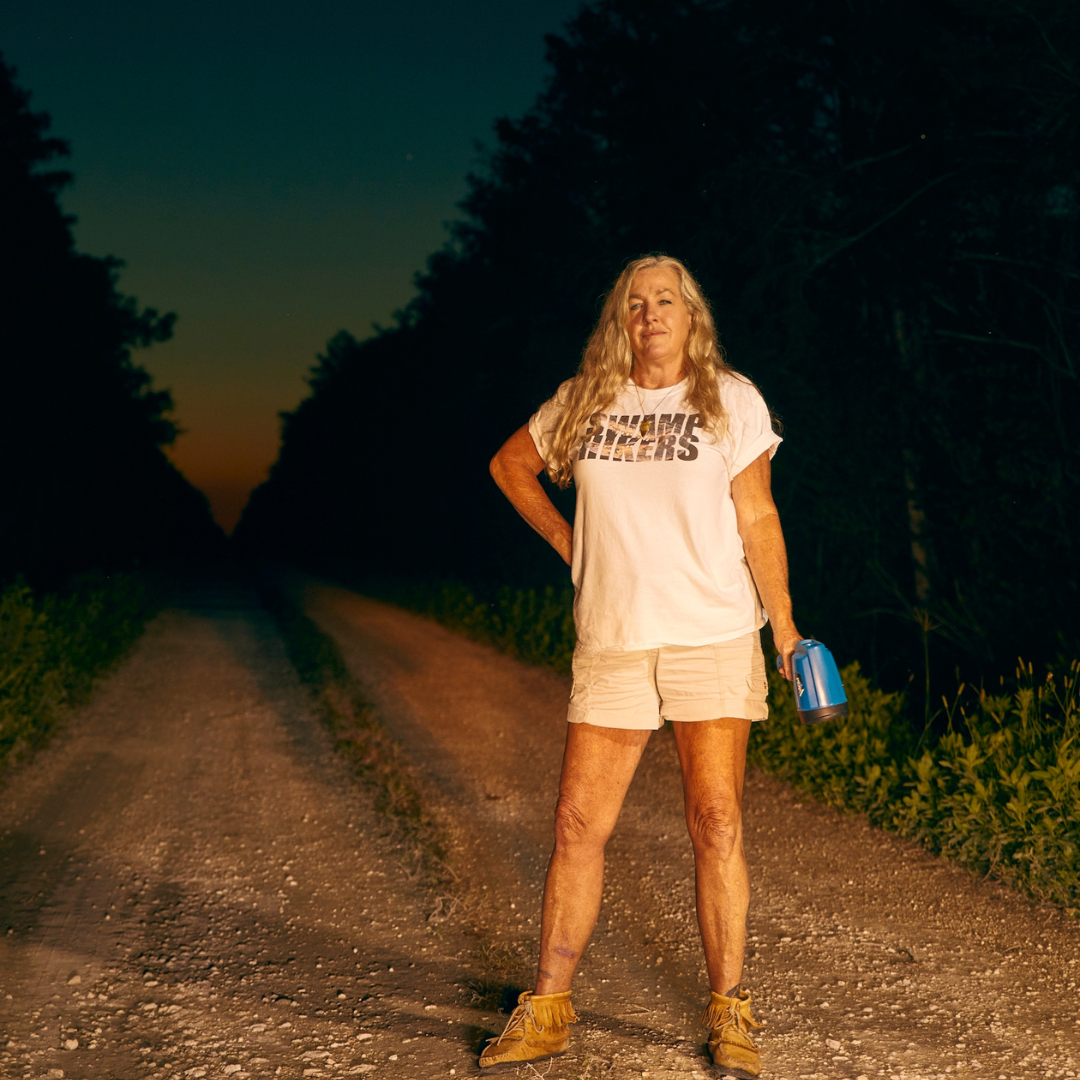Craig Pittman Talks Finding Humanity in Florida’s Wild Side & His Latest Book
With more than 30 years of Sunshine State storytelling under his belt, Craig Pittman collects his most rousing—and revealing—reporting into a one-of-kind anthology: The State You're In.


Craig Pittman will go to great lengths for a good Florida story. There was the time he went python hunting with some fearless females in the Everglades, or the Thanksgiving he spent getting to know a woman, dressed as a turkey, who shoplifted a waffle maker, or the night he ventured into an old water tank in Rotonda West in search of a satanic cult. The satanic cult ended up being a bit of a bust, as the only evidence of demonic worship was some wall graffiti that read, “We worship Satin.” But Pittman’s willingness to chase down even the most eccentric of tips is what’s made him one of our state’s greatest storytellers. Now, a collection of Pittman’s favorite stories from his 30 years of investigative reporting about our peculiar peninsula live together in his latest book, The State You’re In: Florida Men, Florida Women, and Other Wildlife. Inside, Pittman takes readers from a nudist resort in Pasco County to a haunted stretch of I-4 to death row in a Pinellas County prison. And while this renowned journalist is often known for chronicling weird Florida, he assures us that this anthology of columns and articles from his career is not merely a parade of the preposterous, but rather an inspection of the “why” behind Florida’s wacky reputation.
JG: When did you first become curious about the wild and wacky happenings of Florida?
CP: Well, it’s funny because it wasn’t a matter of “I’m going to seek out wild and wacky stuff,” it’s that that stuff was already happening, and I didn’t think it was unusual. I was growing up in Pensacola, and my parents were very dedicated newspaper readers. They subscribed to both the morning and afternoon paper in Pensacola. When they saw something worth reading aloud to each other, they would do that, and a lot of it was really crazy stuff. For instance, we had a guy running for sheriff in Pensacola—his slogan was “law and order”—he was financing his campaign by running a cocaine ring. I just thought that was normal stuff. I thought that every town in America probably had a beach house that looked like a UFO because we had one of those in Pensacola Beach. I thought that everybody had politicians with nicknames like the Banty Rooster.
JG: So when did you realize that wasn’t exactly the case?


CP: I moved to the southwest Florida coast and discovered that not only was the Gulf of Mexico now in the wrong place, because it was to the west of me instead of to the south of me, but also that maybe some of the stuff I was used to in Pensacola was not normal. I met people who were not from Florida, and they were like, “yeah, I’ve never seen anything like this place.” It really got me interested in reading about the history of Florida because I didn’t really know much about what was going on south of, say, Tallahassee. I was used to the Panhandle. So, I really started digging into reading books about Florida history and Florida geography and stuff like that.
JG: People often say you have “an eye for the absurd,” but your writing doesn’t just make Florida the punchline of every joke. How do you find that balance between telling Florida’s most absurd stories and delving into what they mean for our state on a deeper level?
CP: Well you have to remember the humanity of the people involved. I think that’s the key. There’s a little essay in the book about Florida mug shots and about how we often look at the mug shots, and we laugh about the things we see in the mug shots: the guy who’s got a tattoo of Florida on his forehead or there’s like a big dent in his head from a brain injury, and people were laughing about that. The lesson I learned from an incident that I recount in the story is: that could be anybody, and there, but for the grace of God, go I. We may laugh about some of the stories and about some of the dumb things that people do, but the mug shots themselves… there’s a lot more tragedy there than we may want to think about. And keep in mind, too, that a lot of this stuff happens because we’re routinely ranked 49th in the nation for funding for mental health treatment, then that should give you some measure of restraint in making everything into a punchline.
JG: You’ve been a Florida reporter for more than 30 years. How did you select the stories that would make the cut for your new book, The State You’re In?
CP: Some of the stories were things that I knew I definitely wanted to put in there, like the ketchup murder story. That’s one near and dear to my heart, and the column about my uncle Carlyle that closes the book, that’s one that I really wanted to make sure was in there. So there’s a mix of columns and feature stories and a couple of long pieces. There’s one actual investigative story in there, the one about the killing of TyRon Lewis that led to riots in St. Petersburg. I tried to mix it up. So I’d have a serious thing, like TyRon Lewis, and then I’d have a lighter story about the Florida man who wrote all the Encyclopedia Brown stories.
JG: Tell me more about your Uncle Carlyle.
CP: He was my great uncle. He lived in Pensacola. He was a very dedicated bicyclist, and so you’d see him riding around town on his bicycle with his jaunty little cap at an angle, like he’s running the Tour de France. He was really into genealogy, and so he was tracking back on my mother’s side of the family. His goal was to trace it back to the first Scotsman named Stuart who arrived in the colonies. He managed to get back to the first ones to arrive in Florida in 1850. I used to stop by and see him from time to time when I’d come back and visit Pensacola, and he’d pull out these photo albums and show me different ancestors and tell me stories. So in a way, I sort of think of him as my original Florida storyteller.
JG: This might be like picking a favorite child, but do you have a favorite story that appears in your new book?
CP: Uncle Carlyle is probably the best one. Close second would be the one about Arcadia because it covers about 100 years of history in this one town. I used the lens of their annual rodeo to tell the story of the town’s history and how there’s a lot more going on there than you might think.
JG: Reporters get feedback on their stories all the time. Any reader comments that have stuck with you over the years?
CP: One of the stories in the book is about these two scientists who discovered that there’s a legendary creature in the Florida Panhandle that people didn’t think was real, and they discovered that it really exists. They then go about, on their own time and using their own money, to write up a scientific description of this thing. People were calling it the leopard eel because it has spots and it’s long and kind of aquatic. It’s a really weird looking thing. There’s a picture of it in the book. It’s this long, slender creature with little flippers, and up on its head it’s got these things that look like wings, like Captain America’s helmet, but they’re actually external gills. The guy who first found the real one, he said that he was trying to trap frogs or turtles, I forget which, and he said he took it out and put it in a bucket and then later transferred it into a Tupperware container. So, I wrote that in the story. Well, a few weeks later, I got a letter from a New York patent attorney who said, “I represent Tupperware, and we’re objecting to your use of the term Tupperware unless it was absolutely a Tupperware product that was being used and not just a generic plastic container with a top.” I wrote back and said, “Yes, the scientists said it was a Tupperware container, and that’s why I used the term Tupperware. I know Tupperware is a Florida-based product. I would never ever slander the name of a famous Florida product like Tupperware. And in fact, I think your client is missing a bet here. I think they should line this scientist up to endorse their product and to tell other scientists if you capture something that you want to hold on to, keep it in a genuine Tupperware container.”
JG: Is there anything you want readers to know about The State You’re In before they crack it open?
CP: Even though the cover looks wacky (appropriately), and there’s funny stuff in there, there’s also some more serious stuff as well. And the dedication of the book, which was basically to Florida storytellers of the future, is that maybe this will help them understand what we were thinking.





